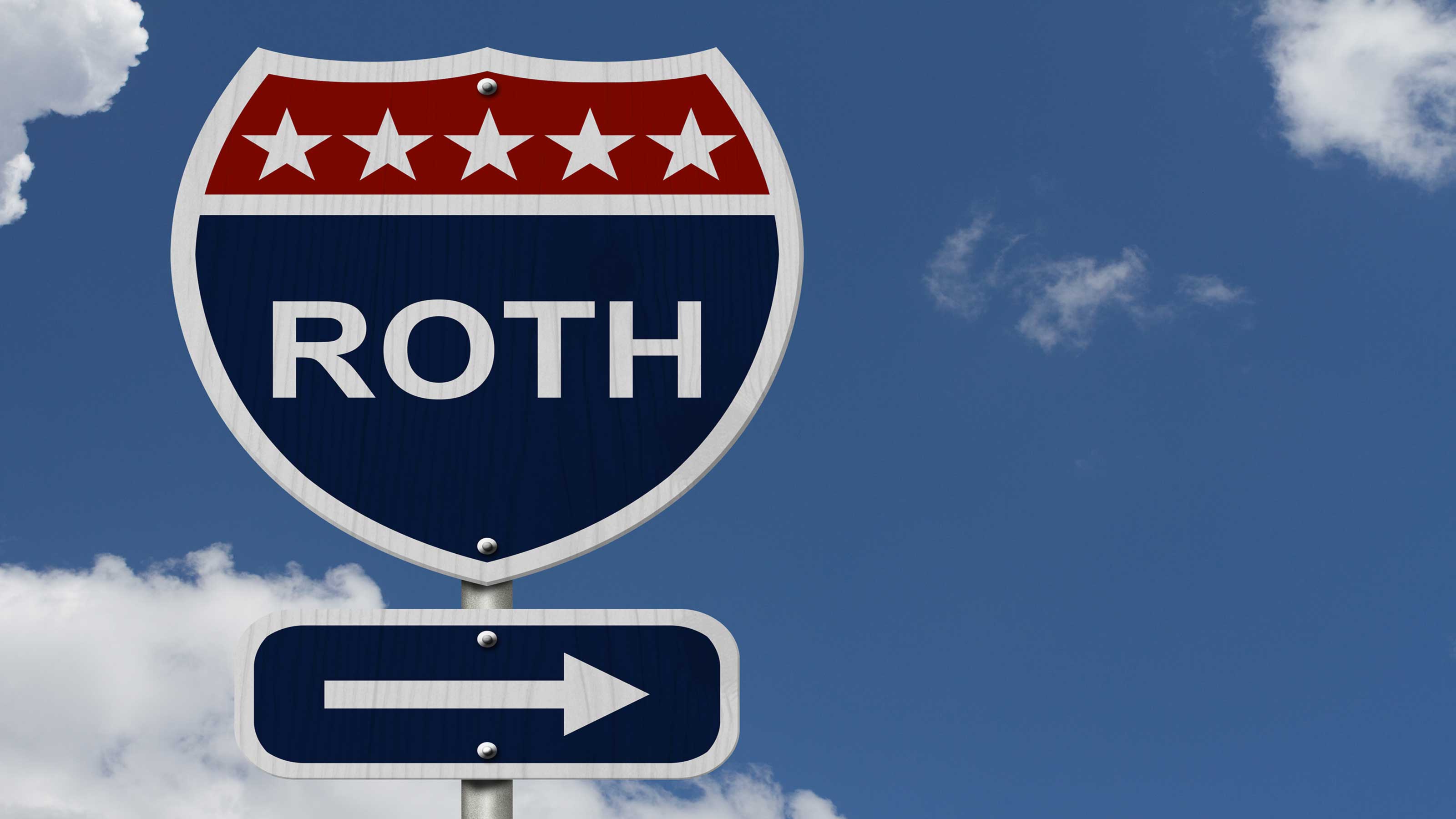Our Best Personal Finance Advice for New Grads
Take heed of these seven personal finance tips now and have no regrets about your early financial life later.

Profit and prosper with the best of Kiplinger's advice on investing, taxes, retirement, personal finance and much more. Delivered daily. Enter your email in the box and click Sign Me Up.
You are now subscribed
Your newsletter sign-up was successful
Want to add more newsletters?

Delivered daily
Kiplinger Today
Profit and prosper with the best of Kiplinger's advice on investing, taxes, retirement, personal finance and much more delivered daily. Smart money moves start here.

Sent five days a week
Kiplinger A Step Ahead
Get practical help to make better financial decisions in your everyday life, from spending to savings on top deals.

Delivered daily
Kiplinger Closing Bell
Get today's biggest financial and investing headlines delivered to your inbox every day the U.S. stock market is open.

Sent twice a week
Kiplinger Adviser Intel
Financial pros across the country share best practices and fresh tactics to preserve and grow your wealth.

Delivered weekly
Kiplinger Tax Tips
Trim your federal and state tax bills with practical tax-planning and tax-cutting strategies.

Sent twice a week
Kiplinger Retirement Tips
Your twice-a-week guide to planning and enjoying a financially secure and richly rewarding retirement

Sent bimonthly.
Kiplinger Adviser Angle
Insights for advisers, wealth managers and other financial professionals.

Sent twice a week
Kiplinger Investing Weekly
Your twice-a-week roundup of promising stocks, funds, companies and industries you should consider, ones you should avoid, and why.

Sent weekly for six weeks
Kiplinger Invest for Retirement
Your step-by-step six-part series on how to invest for retirement, from devising a successful strategy to exactly which investments to choose.
Have you ever wished that you could give your former self some advice? Unfortunately, we can't help you go back to high school and stop you from tattooing your then-favorite singer’s face on your shoulder (Taylor Hicks' soul patrol for life!?). But we can help you look back several years from now and not similarly regret your money mistakes.
Here's some advice from our expert staff on what we wish we’d known about personal finance when we graduated from college and our best suggestions for someone just starting out.
1. To reach your goals, create a budget and stick to it.
Nellie Huang, senior associate editor of Kiplinger’s Personal Finance, says: I made a budget so I could pay off my credit card debt. First, I subtracted from my take-home pay my fixed costs -- rent, utilities and $100 a week for lunch money, train money to commute to and from work, and “fun money.” Then, the $150 I had left went toward the credit card bill.
From just $107.88 $24.99 for Kiplinger Personal Finance
Become a smarter, better informed investor. Subscribe from just $107.88 $24.99, plus get up to 4 Special Issues

Sign up for Kiplinger’s Free Newsletters
Profit and prosper with the best of expert advice on investing, taxes, retirement, personal finance and more - straight to your e-mail.
Profit and prosper with the best of expert advice - straight to your e-mail.
It was tough. The rule was that I could go to the ATM only once a week. If I spent the $100 before the end of the week, too bad -- I couldn’t go out with friends, I walked to work, and I skipped lunch if I had to. (For more, see 10 Tips to Build a Better Budget.)
2. Think about your future and start saving for it now.
Stacy Rapacon, channel editor for Kiplinger.com, says: When I bought a house and had a baby a few months ago, I often thought about how much I'd frivolously spent in younger years on stuff that's useless now -- such as VHS tapes, DVDs, CDs and trendy clothes.
If I had saved that cash, I would've amassed that much more to put toward my down payment and supporting my child. I'm not saying I wish I hadn't spent any money on those fun things (sorry, my baby, but I wouldn't trade my complete series of Buffy the Vampire Slayer on DVD for anything); I just wish I'd spent a lot less then and saved for the future more. (Try these 6 Strategies to Save More.)
3. Start saving for retirement as soon as possible.
Anne Kates Smith, senior editor of Kiplinger’s Personal Finance, says: Fund a 401(k) or IRA with whatever money you have. A little invested now goes a long way. Study a table that shows the magic of compounding and you’ll understand why -- investing a couple of thousand dollars early on for a few years beats saving many times that amount for many more years later. So even if you think you can’t afford to contribute, you must convince yourself that you can’t afford not to.
(Do you need more convincing? See 8 Reasons You Need a Roth IRA Now and Why You Need a 401(k) Right Away.)
4. Use your youthful energy to make more money.
Pat Esswein, associate editor of Kiplinger’s Personal Finance, says: To pay down debt more quickly or to beef up savings and income, do freelance work or take a second, part-time job. You will never have more energy than you do now (and if you’re just out of college, you’re used to working 16 hours a day). Whatever you do now will have a major payoff later -- say, when you want to get married, put a down payment on a house or take a trip around the world.
(If you need help finding just one job, try these 7 Ways to Use Social Networking to Land a Job. Or see How to Get a Raise and get more out of a current position.)
5. Understand investing basics.
Manny Schiffres, executive editor of Kiplinger’s Personal Finance, says: Before you invest in anything, do a little homework to understand what you’re getting into. Sometime in the mid ’70s, when I was in my mid twenties, I made my first investment -- a tax-free bond fund. I was so obsessed with cutting my tax bill, despite having a low-ish tax rate, that I put my money into an investment that offered little potential for growth.
And because we were in a period of rising interest rates, I wound up losing a penny or two per share every day, and I had no idea why. Plus, I'd missed out on making good money by investing in stocks, which performed pretty well for the rest of that decade once the 1973-74 bear market ended.
(Find out what kinds of investments are best for you with our risk tolerance tool.)
6. Beware the dangers of credit cards.
Mark Solheim, senior editor of Kiplinger’s Personal Finance, says: Don’t get a credit card until you are certain you have the money and discipline to pay off the entire balance every month.
When I graduated from college and wanted to take a summer publishing course, I didn’t have enough savings to pay all my expenses. My dad gave me a “loan” in the form of one of his credit cards with the stipulation that I would pay off the balance on my own. My salary from my full-time publishing job was just enough to cover food, rent and gas, with nothing left over for debt payments. It took two years and a slew of extra odd jobs -- painting, mowing lawns -- to finally retire my debt.
(Find out more about Getting Your First Credit Card.)
7. Don't buy what you don't need.
As for me, I wish I’d thought twice about buying a car after I graduated from college. As someone who grew up in small-town Ohio and attended college in Indiana, it didn’t occur to me that in the big city of Washington, D.C., I could get by -- and save a ton of cash -- without my own set of wheels.
I took $239 a month out of my entry-level salary to make loan payments on the barely used Honda Civic I had purchased. Plus, I had the usual expenses for gas, insurance, property taxes, registration, repairs and maintenance. All of that for a car that was nice to have around but that I didn’t really need. I thought about selling it, but Mother Nature eventually made the decision for me: Several tree branches fell on it as Hurricane Irene whipped past D.C. last summer, totaling the car. The insurance payback now serves as a nice cash cushion for emergencies, and I use car-sharing service Zipcar when public transportation won’t do.
(If you decide you really do need a car, see Get the Best Deal on a Used Car and Deals on New Wheels.)
Follow Lisa and the whole Starting Out Kiplinger team on Twitter.
Profit and prosper with the best of Kiplinger's advice on investing, taxes, retirement, personal finance and much more. Delivered daily. Enter your email in the box and click Sign Me Up.

Lisa has been the editor of Kiplinger Personal Finance since June 2023. Previously, she spent more than a decade reporting and writing for the magazine on a variety of topics, including credit, banking and retirement. She has shared her expertise as a guest on the Today Show, CNN, Fox, NPR, Cheddar and many other media outlets around the nation. Lisa graduated from Ball State University and received the school’s “Graduate of the Last Decade” award in 2014. A military spouse, she has moved around the U.S. and currently lives in the Philadelphia area with her husband and two sons.
-
 Nasdaq Leads a Rocky Risk-On Rally: Stock Market Today
Nasdaq Leads a Rocky Risk-On Rally: Stock Market TodayAnother worrying bout of late-session weakness couldn't take down the main equity indexes on Wednesday.
-
 Quiz: Do You Know How to Avoid the "Medigap Trap?"
Quiz: Do You Know How to Avoid the "Medigap Trap?"Quiz Test your basic knowledge of the "Medigap Trap" in our quick quiz.
-
 5 Top Tax-Efficient Mutual Funds for Smarter Investing
5 Top Tax-Efficient Mutual Funds for Smarter InvestingMutual funds are many things, but "tax-friendly" usually isn't one of them. These are the exceptions.
-
 Four Smart Steps To Take Before Buying Your First Home
Four Smart Steps To Take Before Buying Your First Homehome Buying your first home can be daunting. Here are four things you need to do years before you start house-hunting to prepare financially for the biggest purchase of your life.
-
 Why You Need a Roth IRA
Why You Need a Roth IRARoth IRAs With this indispensable savings tool, your money grows tax-free, you can invest in almost anything and you get several cool perks.
-
 How to Get Your First Credit Card
How to Get Your First Credit Cardcredit & debt Plus, how to use it wisely and earn the lowest interest rates.
-
 How $5 and the Stash App Turned Me Into an Investor
How $5 and the Stash App Turned Me Into an Investorstocks Super-low minimums and smartphone accessibility make it easy for young investors to learn the ropes.
-
 5 Smart Ways to Boost Profits at Your Lemonade Stand – or Any Small Business
5 Smart Ways to Boost Profits at Your Lemonade Stand – or Any Small Businessbusiness Make your lemonade stand stand out from the pack with these simple tips.
-
 5 Things New College Grads Really Need to Know About Money
5 Things New College Grads Really Need to Know About Moneyinvesting These tips from financial professionals can help you enter the real world on the right foot.
-
 How to Refinance Your Student Debt
How to Refinance Your Student Debtcredit & debt Consolidating student loans can reduce paperwork and lower your monthly bill.
-
 Should Young Adults Accept Financial Help From Their Parents?
Should Young Adults Accept Financial Help From Their Parents?savings Sometimes it makes financial sense to remain tethered to your parents, but work on a plan to start breaking the financial bond.